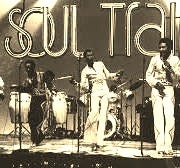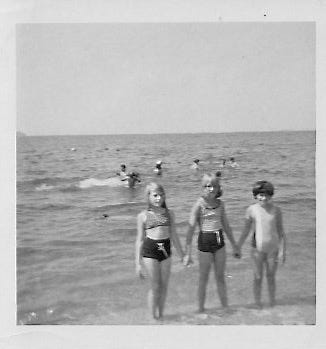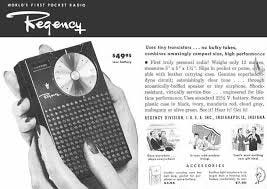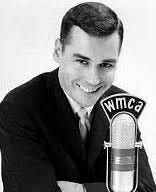The Funkification
How Sly and the Family Stone Changed Everything
When I was a college student in Washington, D.C. in 1975, a then-Under Secretary of Transportation who would eventually become my friend, Elliott, told me at a party that I danced like a Black person.
“Must be all of that Soul Train I watched as a kid,” I slapped back, and continued to roll my hips while groove walking in the opposite direction.
It can be said that when I stopped loving everything by The Beatles (around the time of Magical Mystery Tour) I replaced them with rhythm and blues. It began simply with Motown and Sam & Dave, The Temptations, The Supremes, and the Four Tops. Then Aretha and James Brown took it up another notch, although I only knew them by what I heard on AM radio in my predominantly white suburban community.
I was young and had no elder siblings. My parents did not believe in an allowance (or I shirked my duties too many times). Some money for records could be scrounged from the couch in front of the TV, but the amount depended solely on how long my Dad decided to nap there.
I did watch Soul Train relentlessly when it was on late on Saturday afternoon, in between the go-go of the day and the settling down of the house for the weekend cocktail party. The TV was a mirror for practicing what I saw the kids doing on the show.
But nothing could have prepared me for Sly and the Family Stone. Man, that was some jazzed up shit! And all of the amazement I felt hearing that band for the first time came back to me in multiple showings of Questlove’s new documentary, Sly Lives!, now streaming on Hulu.
I am going to time-travel now back to 1968, the year I turned 12 - the year of the Great Awakening. As you may recall, 1968 was one tough time.
The war in Vietnam was raging to an unmanageable peak. Martin Luther King, Jr, and Robert F. Kennedy were both shot to death in public. Cities across America were bracing for another summer of “unrest” code for rioting and firebombing. Black America had had up to there with unfulfilled governmental promises and what looked to them like planned executions of their leaders. White America was only beginning to realize the depth of despair that Black people felt being constantly ground down to ashes.
And in the Martin household, a new baby boy arrived from who-knows-where, born on April 4, just as Martin Luther King, Jr was breathing his dying last breaths.
I was shocked, to put it mildly. And quite ready to begin separating from the family pod. Now that it was July, I was going out.
“Mom?,” I called upstairs, vaguely in the direction of my brother’s room. “Mrs. Clark is going to take Patty, Nancy and me to the beach at Fleet’s Cove, OK?” “Is it OK if I go?”
I could hear my Mother release an enormous sigh. “OK, I guess,” she said, a little dejectedly. “Don’t forget the sunscreen and pack yourself a little snack. You can use my beach bag. I think your towel is in there, but if it isn’t, look for a towel in the linen closet. When will you be back?” My Mother always liked to forecast the end of the things.
“I guess when Mrs. Clark brings me back,” I said. “But I will ask if we can get home by 5:00 pm, OK?” I knew my Mother would have to drive to the train station to pick my Father up at 6:00 pm so I tried to reassure her that I would be available to look after my brother while she was gone. “OK?” I said again.
Another sigh. “OK,” Mom said. I raced around the house grabbing the things I needed (baby oil, Ban de Soleil, WMCA Good Guy towel, and a sleeve of Triscuits) and was out the door before she could disagree.
The day was murky and hot, with high humidity. When the big station wagon full of us kids rolled to a stop in the parking lot, we did not wait for instruction and ran hellbent for the water while Mrs. Clark yelled to us to help her by bringing our bags down to the sand.
“We’ll do that after we get wet, Mom!” Patty yelled back while the rest of shrieked running on the hot, shell-laden sand. “One, two, three” we said in unison, grateful for reaching the water, and dove headfirst into Long Island Sound.
Shivering, after only a couple of minutes in the water, back we went to the car to get our towels and bags. Soon we were stretched out drying in the sun.
Patty sat up to rummage around in her things. She had brought the one coveted thing that I had forgotten. A transistor radio!
“Should we listen to WABC or WMCA,” Patty asked us, twisting the dial. “Or WINS?” I said nothing, because the radio belonged to Patty and Nancy.
“I like WMCA better than WABC,” Nancy said. I had to agree, but still said nothing. Though Cousin Brucie was on WABC.
“Great! I’m tuning in WABeatlesC! Ron Lundy is on now!” Patty and Nancy had a way of disagreeing about everything. Patty was older, but Nancy was blonde, and blue eyed, and bigger by several pounds. I wanted to stay out of it.
Patty put the radio down on her towel so we all moved closer. “Hey Jude” was coming in loud and clear, about midway through the song.
“Ugh,” said Nancy. “Why do they have to waste a perfectly good song singing ‘na na na na’ for half of it?”
“Yeah, but it gets really cool when Paul starts screaming,” I said. Patty laughed, but did not respond.
“DING!” The bell sound always indicated the end of the song, and sometimes the beginning of a long-winded commercial for Gimbel’s, or Hershey Ice Cream, or Brylcreem.
Then came the happy voice of Ron Lundy. “That was ‘Hey Jude’ by the Beatles on WABeatlesC, their latest single. And now for all you good girls and boys out there enjoying summer vacation, here’s ‘Grazing in the Grass’ by Hugh Masekela. Allright!
I liked this song even without the as-yet unsung lyrics supplied by The Friends of Distinction the next year, and it was #1 on that week’s Top Ten. But we were looking for something to sing along with.
Nancy sat up and grabbed the radio before Patty could say anything. She fiddled with the dial until it tuned to WMCA and Harry Harrison’s show.
Har-ry Harrison! “And now an oldie but goodie from….” said Harrison, but the tuning started to fade, and we could not hear which band he was introducing. An “oldie” might have been from earlier that year, or years before. Nancy rolled the tuner with precision, and suddenly, there was music.
Big horns. “Da da da dada dada daaaaaa!'“ A woman’s voice, screeching to the breaking point. “Sing, get on up, and dance to the music” Another blast of horns, with guitar now wailing high up above them. “Get up now, and dance to the music!,” the woman commanded again.
Keep reading with a 7-day free trial
Subscribe to The Girl Can't Help It to keep reading this post and get 7 days of free access to the full post archives.





